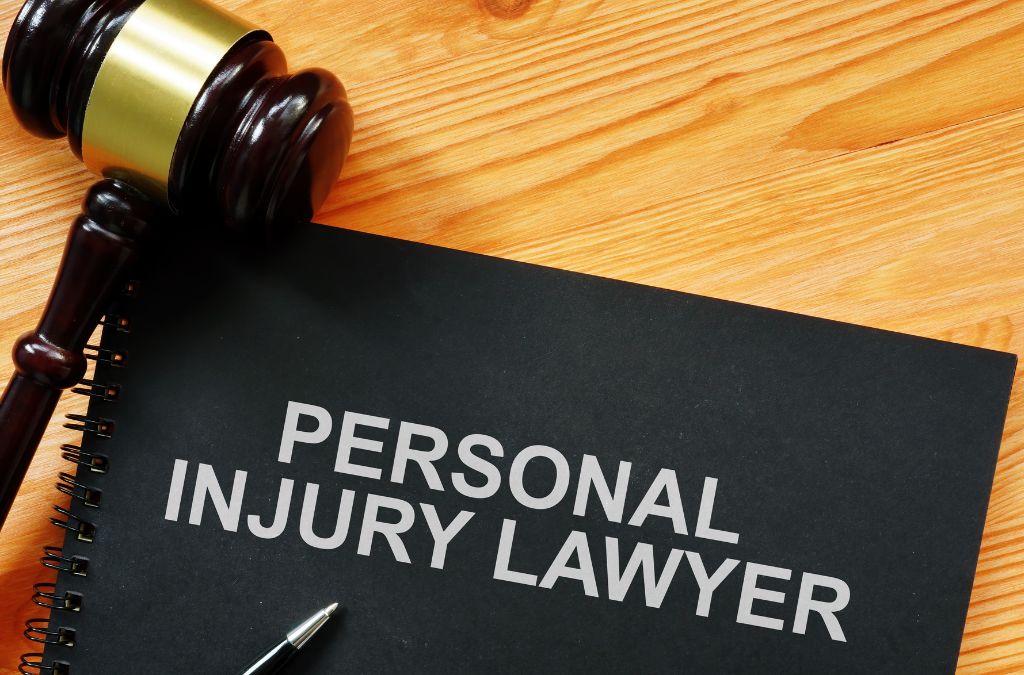-
Table of Contents
- Expert Advice on Choosing a Personal Injury Lawyer: Key Factors for Success
- Understanding the Importance of Specialization
- Case Study: Medical Malpractice
- Evaluating Experience and Track Record
- Example: Car Accident Cases
- Assessing Communication Skills
- Considering Client Testimonials and Reviews
- Example: Online Review Platforms
- Understanding Fee Structures
- Evaluating Professionalism and Ethics
- Example: Bar Association Membership
- Conducting Initial Consultations
- Trusting Your Instincts
- Conclusion
Expert Advice on Choosing a Personal Injury Lawyer: Key Factors for Success
Choosing the right personal injury lawyer can significantly impact the outcome of your case. With numerous options available, making an informed decision is paramount. This article provides expert advice on selecting a personal injury lawyer, highlighting key factors that contribute to a successful partnership.
Understanding the Importance of Specialization
Personal injury law encompasses various types of cases, including car accidents, medical malpractice, and workplace injuries. Selecting a lawyer who specializes in the specific area of your case can enhance your chances of success. Specialized lawyers possess in-depth knowledge and experience, allowing them to navigate complex legal issues effectively.
Case Study: Medical Malpractice
Consider a scenario where a patient suffers from a surgical error. A lawyer specializing in medical malpractice would be well-versed in medical terminology, standards of care, and the intricacies of proving negligence. This expertise can be pivotal in securing a favorable outcome.
Evaluating Experience and Track Record
Experience plays a critical role in the legal field. Lawyers with a proven track record of handling personal injury cases are more likely to achieve positive results. When evaluating potential lawyers, consider their years of practice, the number of cases handled, and their success rate.
Example: Car Accident Cases
A lawyer with extensive experience in car accident cases will be familiar with common defense strategies used by insurance companies. This knowledge enables them to build a robust case and negotiate effectively on your behalf.
Assessing Communication Skills
Effective communication between you and your lawyer is essential for a successful partnership. A lawyer who listens attentively, explains legal concepts clearly, and keeps you informed about the progress of your case can alleviate stress and build trust.
- Regular updates on case developments
- Clear explanations of legal terms and procedures
- Prompt responses to your queries
Considering Client Testimonials and Reviews
Client testimonials and online reviews offer valuable insights into a lawyer’s reputation and client satisfaction. Positive feedback from previous clients can indicate a lawyer’s competence and dedication. Look for patterns in reviews, such as consistent praise for their professionalism, responsiveness, and successful outcomes.
Example: Online Review Platforms
Websites like Avvo, Martindale-Hubbell, and Google Reviews provide platforms for clients to share their experiences. A lawyer with high ratings and positive reviews across multiple platforms is likely to be a reliable choice.
Understanding Fee Structures
Personal injury lawyers typically work on a contingency fee basis, meaning they only get paid if you win your case. Understanding the fee structure and any additional costs involved is crucial. Discuss the percentage the lawyer will take from your settlement and any other expenses you might incur during the legal process.
- Contingency fees
- Additional costs (e.g., court fees, expert witness fees)
- Payment schedule
Evaluating Professionalism and Ethics
A lawyer’s professionalism and ethical standards are fundamental to a successful attorney-client relationship. Look for signs of integrity, such as transparency in communication, honesty about the strengths and weaknesses of your case, and adherence to ethical guidelines.
Example: Bar Association Membership
Membership in professional organizations, such as the American Bar Association or state bar associations, can indicate a lawyer’s commitment to maintaining high ethical standards and staying updated on legal developments.
Conducting Initial Consultations
Many personal injury lawyers offer free initial consultations. Use this opportunity to assess their suitability for your case. Prepare a list of questions to ask during the consultation, such as their experience with similar cases, their approach to handling your case, and their communication style.
- Experience with similar cases
- Approach to case management
- Communication style and availability
Trusting Your Instincts
Your intuition can be a valuable guide when choosing a personal injury lawyer. If you feel comfortable and confident in a lawyer’s abilities, it can positively impact your overall experience. Trusting your instincts can help you select a lawyer who aligns with your needs and expectations.
Conclusion
Choosing the right personal injury lawyer involves careful consideration of various factors, including specialization, experience, communication skills, client reviews, fee structures, professionalism, and initial consultations. By thoroughly evaluating these aspects, you can make an informed decision that enhances your chances of a successful outcome. Trust your instincts and select a lawyer who aligns with your needs and expectations for the best possible experience.
